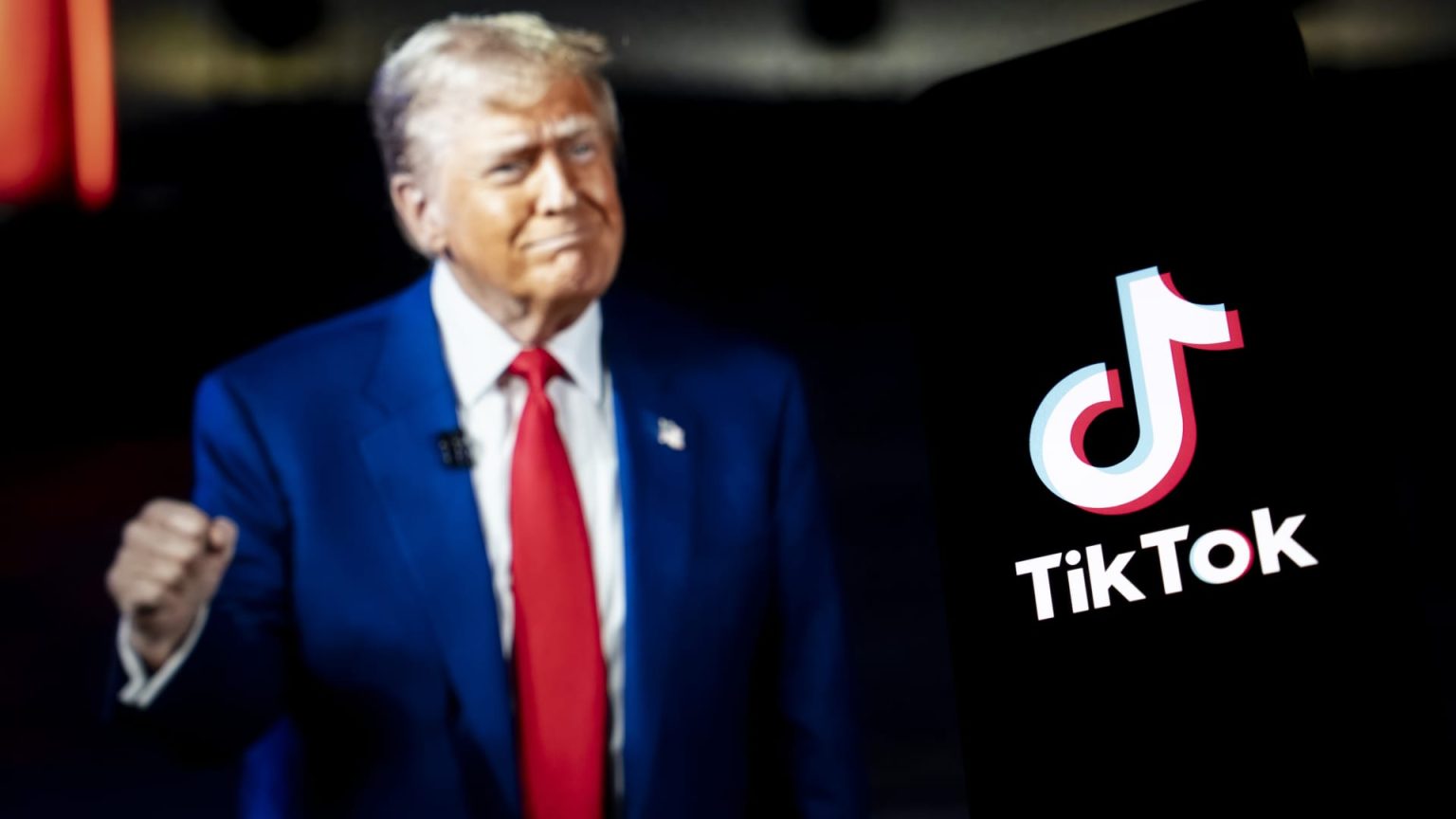In a recent development regarding the popular social media platform TikTok, President Donald Trump has announced an extension of the deadline for ByteDance, the app’s Chinese parent company, to divest its U.S. operations. Originally set for April 5, this new extension will provide an additional 75 days, shifting the deadline to mid-June. The move underscores ongoing tensions between the United States and China and highlights the intricate balance of ensuring national security while fostering business partnerships.
| Article Subheadings |
|---|
| 1) Deadline Extension: What It Means for TikTok |
| 2) The National Security Concerns Behind the Decision |
| 3) Potential Buyers and Their Interests |
| 4) The Reaction from China and ByteDance |
| 5) Future Implications for U.S.-China Relations |
Deadline Extension: What It Means for TikTok
President Trump’s decision to extend the deadline for ByteDance to divest TikTok’s U.S. operations provides the company with a reprieve from an imminent ban. Initially, ByteDance faced a deadline of April 5, which was established under a national security law signed by former President Joe Biden in April 2024. The president’s announcement on his Truth Social platform emphasized that additional time is necessary to finalize agreements that encompass necessary approvals. This decision not only allows TikTok to continue its operations in the U.S. but also reflects a commitment to maintaining dialogue and exploring options that align with national security concerns.
The National Security Concerns Behind the Decision
The U.S. government has repeatedly voiced concerns regarding data privacy and national security in relation to TikTok, particularly due to its ownership by ByteDance, a Chinese company. The apprehensions stem from the potential for user data to be accessed by the Chinese government, raising alarms in the geopolitical landscape. Underlying the decision to extend the deadline, President Trump remarked, “We hope to continue working in good faith with China,” indicating a desire to navigate these concerns without completely severing business ties. The proposed extension ensures that discussions can move forward while addressing the pressing security issues at hand.
Potential Buyers and Their Interests
As the deadline looms, various parties have expressed interest in acquiring TikTok’s U.S. operations. Reports indicate that major corporations and investment groups, such as Oracle, AppLovin, and even a coalition of private equity firms led by Andreessen Horowitz and Blackstone, are keen to enter the bidding for TikTok’s assets. A notable last-minute bid was placed by Amazon, adding a competitive edge to the process. Each potential buyer presents different strategies for how TikTok could operate in the U.S., reflecting the diverse approaches that might meet both business goals and regulatory requirements.
The Reaction from China and ByteDance
ByteDance has indicated that it remains engaged in discussions with U.S. officials regarding the requirements for a successful acquisition, although the company acknowledges that any agreement must comply with Chinese regulations. In a recent statement, a ByteDance spokesperson pointed out that “key matters remain to be resolved,” highlighting the complex interplay between U.S. demands and Chinese legal requirements. The Chinese government’s approval is critical for any deal, essentially placing power in the hands of Beijing regarding how this narrative will play out.
Future Implications for U.S.-China Relations
The extension of the TikTok divestiture deadline carries significant implications for U.S.-China relations. As President Trump reinstates tariff policies, increasing the total tariff rates to 54%, the relationship between the two nations becomes even more strained. Trump’s remarks regarding the tariff as a vital economic tool intertwine with the TikTok negotiations, illustrating how economic leverage is used to influence business outcomes. Future developments surrounding TikTok could set critical precedents for how the U.S. handles foreign technology firms and their ownership structures, ultimately impacting international business relations.
| No. | Key Points |
|---|---|
| 1 | President Trump extends ByteDance’s deadline to divest TikTok’s U.S. operations by 75 days. |
| 2 | Concerns over national security and data privacy drive the need for a divestiture. |
| 3 | Various companies, including Oracle and Amazon, have shown interest in acquiring TikTok. |
| 4 | Any agreement must receive approval from the Chinese government, complicating negotiations. |
| 5 | The TikTok situation reflects the growing tensions in U.S.-China relations, particularly around technological interests. |
Summary
The extension of the deadline for ByteDance to divest TikTok’s U.S. operations illustrates the complexities of navigating international business coupled with national security concerns. As discussions progress amidst tensions between the U.S. and China, the situation remains dynamic, with potential buyers positioning themselves for an acquisition deal – all while the implications for U.S.-China relations loom large. Ultimately, the outcome will serve as a significant indicator of how foreign-owned applications will interact with American laws and security protocols moving forward.
Frequently Asked Questions
Question: What is ByteDance?
ByteDance is a Chinese technology company that owns and operates TikTok, along with other content platforms.
Question: Why does the U.S. government have concerns over TikTok?
The U.S. government has concerns that TikTok collects user data that could potentially be accessed by the Chinese government, raising national security risks.
Question: What are reciprocal tariffs?
Reciprocal tariffs are import duties imposed by one country on goods from another, intended to encourage fair trade and to counteract tariffs imposed by the other country.


